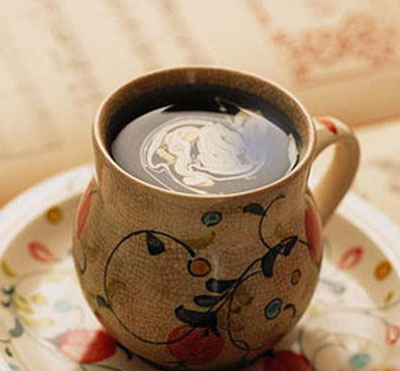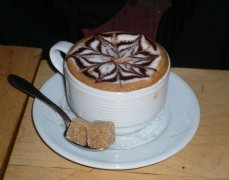Boutique coffee common sense Puritans and new hobbies of the middle class

Puritans generally held a skeptical and hostile attitude toward pleasure. Max Weber wrote in The Protestant Ethic and the Spirit of Capitalism: "Any unrestrained enjoyment of life, whether it takes the form of aristocratic sports or popular revelry in dance halls or taverns, drives men away from duty and religion, and is therefore the enemy of rational asceticism." Although beer was already a mild drink compared to the spirits of the Industrial Revolution, it remained a major target of the Puritans for more than 200 years before the Industrial Revolution. In many caricatures documenting the eating scene of the time, many drunken citizens are ugly, growing monkey, pig, donkey and other animal heads and other characteristics. "Drunkenness" is visualized as a concrete demon, often appearing near wine glasses.
In the sixteenth and seventeenth centuries, however, Puritan propaganda alone was not enough to shake people's love of beer. There must be some material reason for the decline in beer consumption: socio-economic development and the gradual refinement of the division of labor place increasing demands on workers, which limits the amount they can drink every day. A new drink stepped in, satisfying new demands beyond the glass. In the 17th century, Europeans discovered coffee as a new beverage that could replace beer soup.
In an English poem written in 1674:
When cloudy beer clouds our consciousness,
God sent us healthy fruits.
……
Here comes the coffee. This drink warms the stomach, makes people think and remember.
To cheer up the sorrowful, to awaken the zeal of life;
And it was so restrained, so unindulgent.
From this poem we can see that people have become accustomed to giving spiritual meaning to a drink, and we can compare it with the Book of Romans written in 56 AD: "Lord, thank you for giving us beer, because of your grace, it flows out of the heart of grain and heals our diseases." Blessed be everyone who calls your name, and let them derive health from beer, body and soul."
In the context of western culture, the relationship between wine and spirit has always been inseparable. Because alcohol circulates much faster than food, people tend to think of alcohol as more spiritual than food. In biblical tradition, wine symbolizes the blood of Jesus. When people drink wine at communion, they are with the Lord. This spiritual role shift from beer to coffee represents a new understanding of the spiritual value that drinks can carry.
Coffee's conquest of beer first came from pharmacological functions. When people are delirious from drinking, a cup of coffee can often wake them up. In this sense, coffee and beer constitute the sobriety/intoxication binary opposition, and in an era calling for rationality and efficiency, the popularity of coffee has become an almost irreversible trend. Coffee is more functional than hedonistic, which makes it a daytime drink. Beer belongs to evening and night. In the seventeenth century, coffee was not fully understood. It obviously did not warm the stomach as the poem said. On the contrary, drinking coffee on an empty stomach would accelerate acid secretion and cause retching. Beer's benefits are more spiritual than its health benefits. When coffee is drunk and one feels excited, one's memory is enhanced, and there is no decay of excitement like drinking wine, it is naturally easy to believe that this drink is beneficial to reason and speculation. From the 17th century onwards, coffee houses became popular in Europe.
Since ancient times, drinking beer has been a collective act, even strangers will toast each other, toast, show each other's friendship. Over and over again, people develop a sense of ritual with each other, and this connection based on excitement is reinforced. Coffee behaves differently than beer. First, coffee is a hot drink that needs to be heated before drinking, and people can't drink it cup after cup. Second, coffee excitement isn't enhanced by drinking too much, so people abandon the ritual of drinking beer. There is no toast or toast, and naturally there is no sense of community. In other words, beer brings a sense of "we" and coffee is "I", and this "I" will be strengthened by caffeine. In the ubiquitous cafes on the street, the most common sight is a person reading a newspaper alone with a cup of coffee.
Coffee is sobering, it reduces sleep, it suppresses libido, and it helps people develop self-awareness. These three points are clear enough: if beer represents the Middle Ages, coffee is the ideal drink for Puritans in the Reformation. Beer as a light entertainment, in front of coffee in an awkward position, relative to spirits, beer enough moderation, but relative to coffee, beer brought entertainment is a complete waste of energy. The dichotomy of day/night, sobriety/intoxication, temperance/indulgence gave the drink a class tinge, and coffee's ability to reduce sleep time meant that more labor time could be extracted from the traditional concept of time. In Calvinism, the middle class concentrated on accumulating wealth, which was regarded as a sign of loyalty to God, so coffee became the preferred drink of the middle class. Alcohol, though not banned, is repressed by mainstream ideology and banished to private spaces and "low" taverns.
Important Notice :
前街咖啡 FrontStreet Coffee has moved to new addredd:
FrontStreet Coffee Address: 315,Donghua East Road,GuangZhou
Tel:020 38364473
- Prev

Fine coffee beans Indonesian butterfly butterfly ultra-fine coffee powder
Indonesia Butterfly Global Coffee butterfly Superfine Coffee Powder directly brewed this is a shallow era. No one has written the blog, Weibo's drool continues to soar, but after a while, a carefully written blog will still have reading value, then where will Weibo be? The same is true of coffee, there is always a simpler and faster way to make coffee, but what about the aroma of coffee? Me
- Next

Coffee basic common sense taste a strong cup of Russian coffee
Russian coffee towering Ural Mountains and ice and snow in winter created a strong Russian personality, but also give Russian coffee a warm and intense taste. Russian coffee is rich in nutrients. First break an egg yolk into a pan, then add chocolate and a small amount of milk, heat and melt, then pour in a small cup of Vodka, and finally add a tablespoon
Related
- Beginners will see the "Coffee pull flower" guide!
- What is the difference between ice blog purified milk and ordinary milk coffee?
- Why is the Philippines the largest producer of crops in Liberia?
- For coffee extraction, should the fine powder be retained?
- How does extracted espresso fill pressed powder? How much strength does it take to press the powder?
- How to make jasmine cold extract coffee? Is the jasmine + latte good?
- Will this little toy really make the coffee taste better? How does Lily Drip affect coffee extraction?
- Will the action of slapping the filter cup also affect coffee extraction?
- What's the difference between powder-to-water ratio and powder-to-liquid ratio?
- What is the Ethiopian local species? What does it have to do with Heirloom native species?

